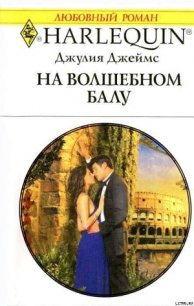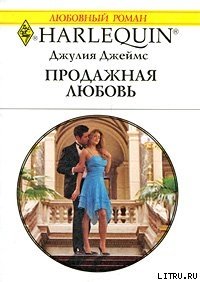Julia Ward Howe - Richards Laura E. (бесплатная регистрация книга TXT) 📗
These entertainments brought in over two thousand dollars. This money enabled the women to install such exhibits as were ready, to pay for a time the necessary workmen, and to engage a special police force for the protection of their goods. The United States ships in the harbor also espoused the cause, Admiral Jouett, of the flagship Tennessee, and Captain Kane, of the Galena, sending experienced craftsmen whose ready and skilful work soon changed the somewhat desolate aspect of the gallery.
The arrangements were as simple as might be, the greatest expense being the purchase of showcases. The tables were of rough pine boards covered with cambrics and flannels, the draperies of the simplest and cheapest, the luxury of a carpet was enjoyed only here and there; but the excellence of the exhibits, and the taste with which they were displayed, made the department a pleasant place. The winter was cold; the wooden walls of the Government Building let in many a chilling blast; but there was a stove in the office of the chief of installation, and with its help the daily cup of tea was made which kept the workers alive.
Each State and Territory had a separate opening day for its exhibit. These days were marked by public meetings at which compliments were exchanged, addresses made, and the exhibits turned over to the management. It was considered obligatory for all the commissioners to attend these meetings, and the women spent many weary hours trying to hear the addresses of distinguished individuals whose voices contended in vain with the din of the machinery. The Mexican Band played, and relieved the tedium of the long sittings; but the women commissioners were upheld chiefly by the feeling that they were drawn together from all parts of the country, and were taking an honored part in a great industrial and peaceful pageant, whose results would be important to the country and to mankind at large.
The Journal tells in February of the "opening of the colored people's department; very interesting. A numerous assemblage of them showed a wide range of types. Music, military, drumming especially good. Saw in their exhibit a portrait of John A. Andrew which looked like a greeting from the old heroic time."
The Woman's Department was formally opened on March 3, though it had really been open to the public since early January. The day was one of the gayest in the history of the Exposition. The gallery of the Government Building was bright with flowers and gay with flags. Admiral Jouett had sent the ship's band as a special compliment; the music was delightful, the speeches excellent. We quote from Mrs. Howe's address:—
"I wish to speak of the importance, in an industrial point of view, of a distinct showing of women's work in the great industrial exhibits. There are few manufactures in which the hand and brain of woman have not their appointed part. So long, however, as this work is shown merely in conjunction with that of men, it is dimly recognized, and makes no distinct impression. The world remains very imperfectly educated concerning its women. They are liable to be regarded as a non-producing class, supported by those to whom, in the order of nature, their life is a necessary condition of existence itself.... Exhibits like the present, then, are useful in summing up much of this undervalued work of women. A greater moral use they have in raising the standard of usefulness and activity for the sex in general. Good work, when recognized, acts as a spur to human energy. Those who show how women can excel are examples to shame those who do not try. They lay upon their sex an obligation to stronger endeavor and better action, and society gains thereby.
"Still more have I at heart the association, in these enterprises, of women who are not bound to each other by alliance of blood, or affinity of neighborhood. Greater and more important than the acquisition of skill is the cultivation of public spirit. 'Pro bono publico' is a motto whose meaning men should learn from their infancy, and at their firesides. How shall they learn it unless the women, the guardian spirits of the household, shall hold and teach, beyond all other doctrines, that of devotion and loyalty to the public good?
"I value, then, for the sake of both men and women, the disinterested association of women for the promotion of the great interests of society....
"You were stirred the other day by the bringing back of a battle-flag whose rents had been carefully mended. I tell you, sisters, we have all one flag now, broad and bright enough to cover us all. Let us see that no rent is made in it.
"All that the best and wisest men can imagine for the good of the human race can be wrought if the best women will only help the best men."
One of her most arduous tasks was the arranging of a course of twenty-four "Twelve-o'Clock Talks," which were given every Saturday from the middle of February till the close of the Exposition. How she labored over them her companion daughter well remembers: remembers too what success crowned the effort. The subjects varied widely. Captain Bedford Pym, R.N., discoursed on Arctic explorations; Charles Dudley Warner told the story of the Elmira Reformatory; the Japanese Commissioner spoke of woman's work in Japanese literature. These talks were free to the public, and proved so popular that eight years later the same plan was carried out in the Woman's Department of the Chicago World's Fair, and again proved its excellence and value.
As if all this were not enough, she must found a Literary Association among the young people of New Orleans. She named them the Pans, and among their number were several whose names have since become well known in literature. Grace King, Elizabeth Bisland, and others will remember those evenings, when their bright youth flashed responsive to the call of the elder woman of letters.
In all the stress and hurry, we find this entry:—
"My dear father's birthday. I left the Exposition early and walked to visit dear Marion's grave in Girard Street Cemetery. A lovely place it was. He is buried above ground in a sort of edifice formed of brick, the rows of coffins being laid on stone floors, each single one divided from those on either side of it by a stone partition. 'Francis Marion Ward, died September 3rd, 1847.' Erected by William Morse, dear Marion's friend."
"May 16. Gave my talk to the colored people, soon after two in the afternoon in their department. A pretty hexagonal platform had been arranged. Behind this was a fine portrait of Abraham Lincoln, with a vase of beautiful flowers [gladiolus and white lilies] at its base. I spoke of Dr. Channing, Garrison, Theodore Parker, Charles Sumner, John A. Andrew, Lucretia Mott, and Wendell Phillips, occupying about an hour. They gave me a fine basket of flowers and sang my 'Battle Hymn.' Afterwards the Alabama cadets visited us. We gave them tea, cake and biscuits and I made a little speech for them."
Winter and spring passed rapidly, each season bringing fresh interest. The picturesqueness of New Orleans, the many friends she made among its people, the men and women gathered from every corner of the world, well made up to her for the vexations which inevitably attended her position. Looking back on these days, she said of them: "It was like having a big, big Nursery to administer, with children good, bad, and middling. The good prevailed in the end, as it usually or always does, and yet I used to say that Satan had a fresh flower for me every morning, when I came to my office, and took account of the state of things."
The difficulties with which the unfortunate managers were struggling made it impossible for them to keep their promises of financial support to the Woman's Department. Things went from bad to worse. Finally she realized that she herself must find the money to pay the debts of her department and to return the exhibits to the various States. She wrote a letter to John M. Forbes, of Boston, urging him to help her and her assistants out of their alarming predicament. Through Mr. Forbes, the Honorable George F. Hoar, Senator from Massachusetts, learned the state of the case. The sum of $15,000 had been named as that necessary to pay all just claims and wind up the affairs of the Department. At this time a bill was before Congress for an appropriation to aid the Exposition. Thanks to the efforts of Mr. Hoar, a sum of $15,000 was added to this bill with the express clause, "For the Relief of the Woman's Department." The bill was passed without discussion. The news was received with great rejoicing in New Orleans, especially in the Woman's Department, "where our need was the sorest." The promise brought new life to the weary workers; but they were to be far more weary before the end. The Exposition closed on the last day of May. Summer was upon them; the Northern women, unused to the great heats of New Orleans, longed to close up their business and depart, but the money had not come from Congress, and they could not leave their post. Days dragged on; days of torrid, relentless heat. Our mother must borrow money for the Department here and there to bridge over the gap between promise and fulfilment. Worn out by fatigue, anxiety, and the great heat, she fell seriously ill. Those nearest her begged her to go home and leave to others the final settlement of affairs, but she would not hear of this. She would get well: she must get well! Rallying her forces, mental and physical, she did get well, though her illness for a time seemed desperate.




